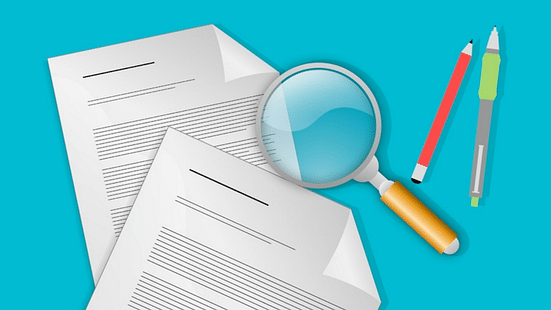 CAT 2023 Daily Practice Questions for 29 September
CAT 2023 Daily Practice Questions for 29 SeptemberCAT 2023 Daily Practice Questions (29 September): As the CAT 2023 examination date comes closer, the students must practice the sample questions as much as they can. To help the students with their preparations on all domains i,e, QA, VARC, or LRDI, we are continuing our daily practice questions for CAT 2023 today 29 September 2023. Read the paragraph shared carefully based on which the questions are shared.
Also Read | CAT 2023 Daily Practice Questions for 27 September
CAT 2023 Daily Practice Questions for 29 September
Here are the questions as practice for candidates preparing for CAT 2023 for 29 September 2023 as a reference:
The passage below is accompanied by a set of questions. Choose the best answer to each question.
As software improves, the people using it become less likely to sharpen their own know-how. Applications that offer lots of prompts and tips are often to blame; simpler, less solicitous programs push people harder to think, act and learn.
Ten years ago, information scientists at Utrecht University in the Netherlands had a group of people carry out complicated analytical and planning tasks using either rudimentary software that provided no assistance or sophisticated software that offered a great deal of aid. The researchers found that the people using the simple software developed better strategies, made fewer mistakes and developed a deeper aptitude for the work. The people using the more advanced software, meanwhile, would often "aimlessly click around" when confronted with a tricky problem. The supposedly helpful software actually short-circuited their thinking and learning.
[According to] philosopher Hubert Dreyfus . . . . our skills get sharper only through practice, when we use them regularly to overcome different sorts of difficult challenges. The goal of modern software, by contrast, is to ease our way through such challenges. Arduous, painstaking work is exactly what programmers are most eager to automate-after all, that is where the immediate efficiency gains tend to lie. In other words, a fundamental tension ripples between the interests of the people doing the automation and the interests of the people doing the work.
Nevertheless, automation's scope continues to widen. With the rise of electronic health records, physicians increasingly rely on software templates to guide them through patient exams. The programs incorporate valuable checklists and alerts, but they also make medicine more routinized and formulaic-and distance doctors from their patients. . . . Harvard Medical School professor Beth Lown, in a 2012 journal article . . . warned that when doctors become "screen-driven," following a computer's prompts rather than "the patient's narrative thread," their thinking can become constricted. In the worst cases, they may miss important diagnostic signals. . . .
In a recent paper published in the journal Diagnosis, three medical researchers . . . examined the misdiagnosis of Thomas Eric Duncan, the first person to die of Ebola in the U.S., at Texas Health Presbyterian Hospital Dallas. They argue that the digital templates used by the hospital's clinicians to record patient information probably helped to induce a kind of tunnel vision. "These highly constrained tools," the researchers write, "are optimized for data capture but at the expense of sacrificing their utility for appropriate triage and diagnosis, leading users to miss the forest for the trees." Medical software, they write, is no "replacement for basic history-taking, examination skills, and critical thinking." . . .
There is an alternative. In "human-centered automation," the talents of people take precedence. . . . In this model, software plays an essential but secondary role. It takes over routine functions that a human operator has already mastered, issues alerts when unexpected situations arise, provides fresh information that expands the operator's perspective and counters the biases that often distort human thinking. The technology becomes the expert's partner, not the expert's replacement.
Question 1.
From the passage, we can infer that the author is apprehensive about the use of sophisticated automation for all of the following reasons EXCEPT that:
- it stops users from exercising their minds.
- it could mislead people.
- computers could replace humans.
- it stunts the development of its users.
Question 2.
In the Ebola misdiagnosis case, we can infer that doctors probably missed the forest for the trees because:
- they were led by the data processed by digital templates.
- the digital templates forced them to acquire tunnel vision.
- they used the wrong type of digital templates for the case.
- the data collected were not sufficient for appropriate triage
Question 3.
In the context of the passage, all of the following can be considered examples of human-centered automation EXCEPT:
- software that offers interpretations when requested by the human operator.
- software that auto-completes text when the user writes an email.
- medical software that provides optional feedback on the doctor's analysis of the medical situation.
- a smart-home system that changes the temperature as instructed by the resident.
Question 4
. It can be inferred that in the Utrecht University experiment, one group of people was "aimlessly clicking around" because:
- they were hoping that the software would help carry out the tasks.
- they did not have the skill-set to address complicated tasks.
- the other group was carrying out the tasks more efficiently.
- they wanted to avoid making mistakes.
Also Read |
For the latest Education News , keep visiting CollegeDekho. You can also ‘follow’ our WhatsApp Channel to stay updated with the latest happenings. You can also write to us at our E-Mail ID news@collegedekho.com .


 Follow us
Follow us













